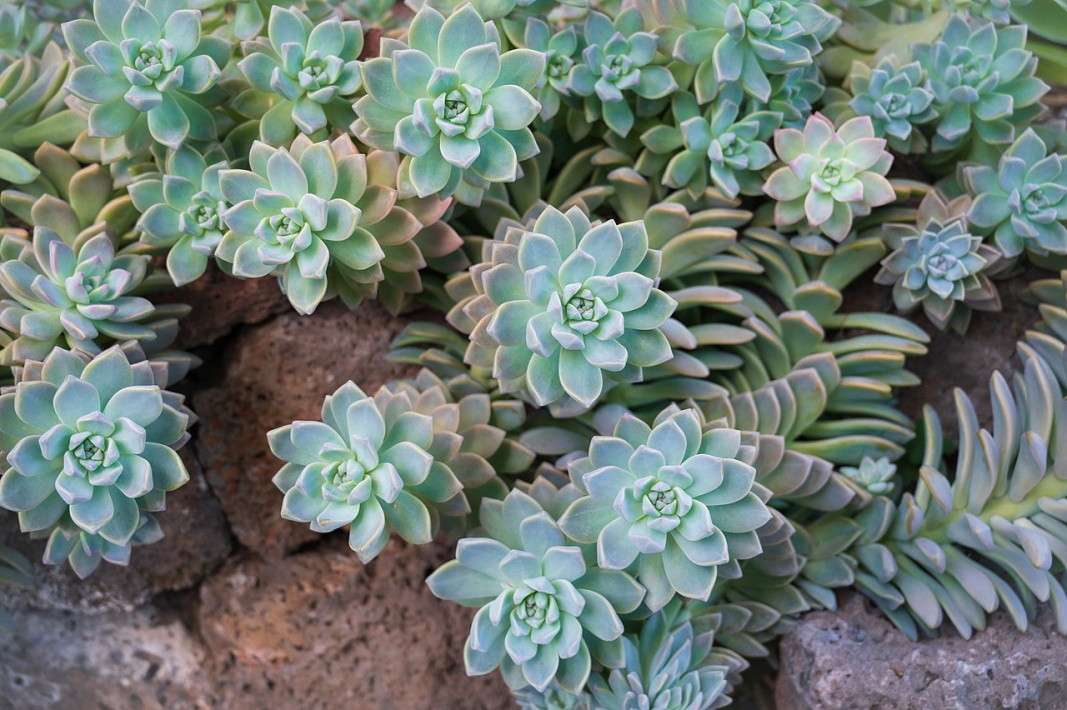As the search for a cure for coronavirus has been progressing in the past two years, a plant known as “ghost plant” (graptopetalum paraguayense) got the attention of scientists because of its antimicrobial properties. At first glance it may look like an ordinary plant species from the stonecrop family (Crassulaceae), it is unpretentious and easy to grow at home. For this reason, it is very widespread as a decorative flower, including in Bulgaria. Actually it originated in Mexico, but it is often part of the diet of people in Asia, and most of all in Taiwan. And one more fact – pandemic levels in Taiwan are among the lowest.

It is these findings by the researchers who have been trying to analyze the Taiwanese phenomenon that propelled the scientific career of Nina Nankova, who works at the Institute of General and Inorganic Chemistry at the Bulgarian Academy of Sciences (BAS), and who has been studying the antiviral properties of the ghost plant for a long time. She first took an interest in the plant when she found out, from BAS coworkers, that it is applied in the treatment of some infections:
“We first studied its antibacterial and antiviral properties, and it demonstrated a robust effectiveness against the herpes viruses,” Nina Nankova says in an interview for the BNR’s Horizont channel. “And as the study of its antiviral activity towards herpes viruses is a project financed under the Ministry of Education and Science’s Scientific Research project, when the pandemic hit us, the Ministry invited the project leader Assoc. Prof. Markova to study the plant to establish whether it can be applied in the fight against the coronavirus.”
Tests were conducted with eight kinds of human coronaviruses, with the exception of SARS-Cov2. “We are not studying this coronavirus because working with it in a laboratory is not allowed,” Nina Nankova says and adds:

“With the other human coronaviruses, in which we have studied the inhibiting effect of the plant extract, the results have been quite good,” the young scientist explains. “The plant is being studied for potential medical use. But my role, and the role of my colleagues working in the sphere of theoretical computational chemistry, is to analyze which compound or group of compounds is responsible for this antiviral activity.”
Thanks to this innovative project, Nina Nankova earned a scholarship from the For Women in Science international awards competition, under the auspices of UNESCO. The EUR 5,000 will be spent on powerful computers, consumables etc.

“The most important thing for any scientist is to publish articles,” the young researcher says. “More and more often you have to pay the magazine to have your work published. A significant part of the money will probably be spent on that, another part – on popularizing the results of conferences and science forums. The requirements of the Scientific Research fund are now more restrictive.”
Despite all difficulties and the meagre funding for science in Bulgaria, Nina Nankova says Bulgaria’s scientists find a way to develop their scientific potential and to adhere to world standards in their work. The family environment is essential if we want children to acquire an interest in knowledge and to unfold their full potential.
“There will always be scientists in the world because scientists are formed in the family – by the example set by their parents, by being encouraged to read more and to take an interest,” Nina Nankova says in conclusion.
Interview by Dobromir Videv, Horizont channel, BNR
Editing by Darina Grigorova
Photos: zajenitevnaukata.bg, libraryTwenty-seven years ago, a Bulgarian mountaineer left his country in the grip of social and economic instability to fulfil a long-held dream. With about $3,000 in his pocket and a backpack, Constantine Zlatev set off for the US to climb one of the..
Anabell Casaboff is one of the thousands of descendants of Bulgarians in Argentina who do not speak the language of their grandparents but Bulgaria is still present in their lives. She is a charming ballerina who dances and teaches..
Mihaela Aroyo is a professional photographer from Varna, Bulgaria. She has no family or close friends who are Bessarabian Bulgarians. But in 2019, after attending a youth festival in a Moldovan village, she was deeply impressed and decided to dedicate..

+359 2 9336 661
